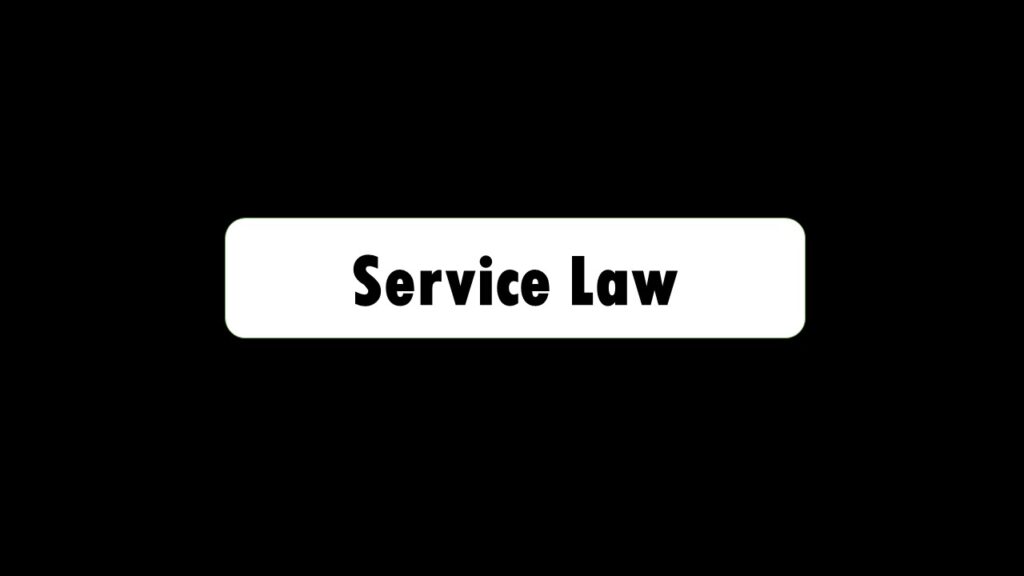Shaji, N. vs. District Officer and Ors. [MANU/KE/0380/1997]: Kerala High Court
The
selecting authority cannot embark on the question as to whether a particular
qualification is or is not higher than the prescribed qualification
5. A more appropriate ruling is a Full Bench ruling of the Karnataka High Court reported in Karnataka Public Service Commission v. N.C. Hugar 1981 (1) S.L.R. 469. In the above case the question was whether a candidate possessing a higher educational qualification than the minimum educational qualification prescribed for the post is eligible for being appointed to that post. The qualification prescribed for the post of Technical Assistant in the Department of Public Libraries were Bachelor’s degree and a Certificate in Library Science or Diploma in Library Science. The Petitioners therein were holders of a degree in Library Science. While dealing with the above question the Full Bench discussed the matter as follows:
10. The Public Service Commission has to ascertain whether the candidate for recruitment to a particular post possesses the qualification prescribed for that post. If the candidate does not possess the qualifications that are prescribed by the rules, the question as to whether some other qualification possessed by the candidate is higher or not does not arise for consideration. In this context, it is better to clarify what the expression higher qualification than the one prescribed by the Rules means. This can better be explained by illustrations. If ‘A’ is the qualification prescribed by the rule, then if a person who after acquiring the qualification ‘A’, has acquired a further or superior qualification ‘B’ in the same field, such a person can be regarded as a person possessing a qualification higher than the prescribed qualification. Such person is undoubtedly qualified in as much as he possesses the prescribed qualification ‘A’. The fact that he possessed a further qualification ‘B’, which may be regarded as higher qualification cannot render him unqualified. In such a case the question of deciding whether ‘B’ is a higher qualification does not at all arise. If a second class degree is prescribed as the minimum qualification for a post, a person possessing a first class degree cannot be regarded as ineligible because such a candidate in addition to securing the marks required for obtaining a second class degree lies obtained larger number of marks. Similarly, a candidate who has passed IX Standard, after passing the VIII Standard cannot be regarded as ineligible if the minimum qualification prescribed for the post is VIII Standard. In such cases the principle, that larger includes the smaller applies. But this principle will not apply to cases where a Diploma or Certificate in a particular subject granted by a particular institution is prescribed as the minimum qualification for the post and the candidate has not acquired any such qualification but has obtained a degree in the same subject from another institution. But, if ‘A’ is the prescribed qualification and the candidate does not possess the said qualification ‘A’, but possess ‘B’ qualification the question that may arise for consideration is as to whether the qualification ‘B’ possessed by the candidate is higher than the qualification ‘A’. In such a situation, it is not open, in our opinion, for the Public Service Commission to embark upon an investigation of the question as to whether the qualification ‘B’ possessed by the candidate is higher than the prescribed qualification ‘A’ inasmuch as such power is not conferred on the Public Service Commission. The power of prescribing the qualification being with the rule making authority, it not having prescribed ‘B’ as one of the qualifications for the post, the said qualification cannot be taken into consideration. To hold otherwise would lead to innumerable problems and difficulties. In respect of a particular subject, education may be imparted and qualifications conferred by several institutions in the State, in India and in several parts of the world. If persons possessing different qualifications conferred by different institutions in the world come and assert before the Public Service Commission that the qualifications possessed by them though they are not the expressly prescribed qualifications, are qualifications higher than those prescribed can it be said that the Public Service Commission is required to make an investigation about the course of study and the nature of qualifications conferred by various institutions. This is a difficult and complicated process which is bound to take enormous amount of time. This task in the very nature of things, cannot be satisfactorily discharged by the Public Service Commission whose duty is to scrutinise the applications and proceed to the next Stage of notifying the candid dates for interview or for written examination without undue waste of time. The task of determining as to whether a particular qualification is higher than the prescribed qualification is not an easy one. One cannot go by the mere name or description of the qualification. It is not correct to assume that degrees are higher than diplomas or certificates for it is well known that diplomas or certificates conferred by some institutions enjoy higher status in the academic world than the degrees conferred by other institutions. Even among degrees conferred by different institutions there may not be uniformity. As the qualifications are prescribed having regard to the needs and requirements of the particular post, it cannot be said that a higher academic qualification is necessarily a higher qualification from the point of view of the requirements of the concerned post. If the rule making authority intended that the Public Service Commission or the selecting authority should take into consideration higher qualifications, it would have so provided. Having regard to all relevant aspects, we are clearly of the opinion that the Public Service Commission or the selecting authority, whose duty is to ascertain as to whether particular candidate possesses the qualification prescribed by the rules, cannot embark on the question as to whether a particular qualification is or is not higher than the prescribed qualification.
